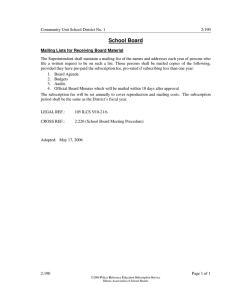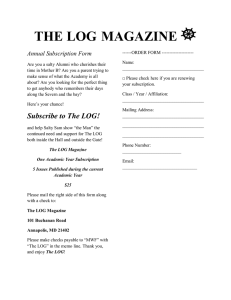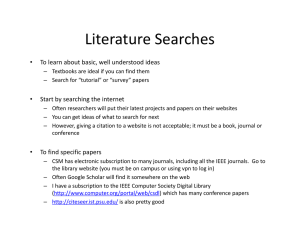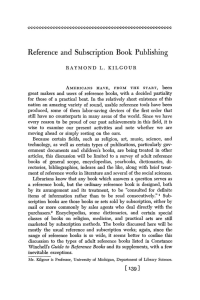INQUIRY PHASE 2: INVESTIGATING – KNOWLEDGE & UNDERSTANDING NOTES:
advertisement
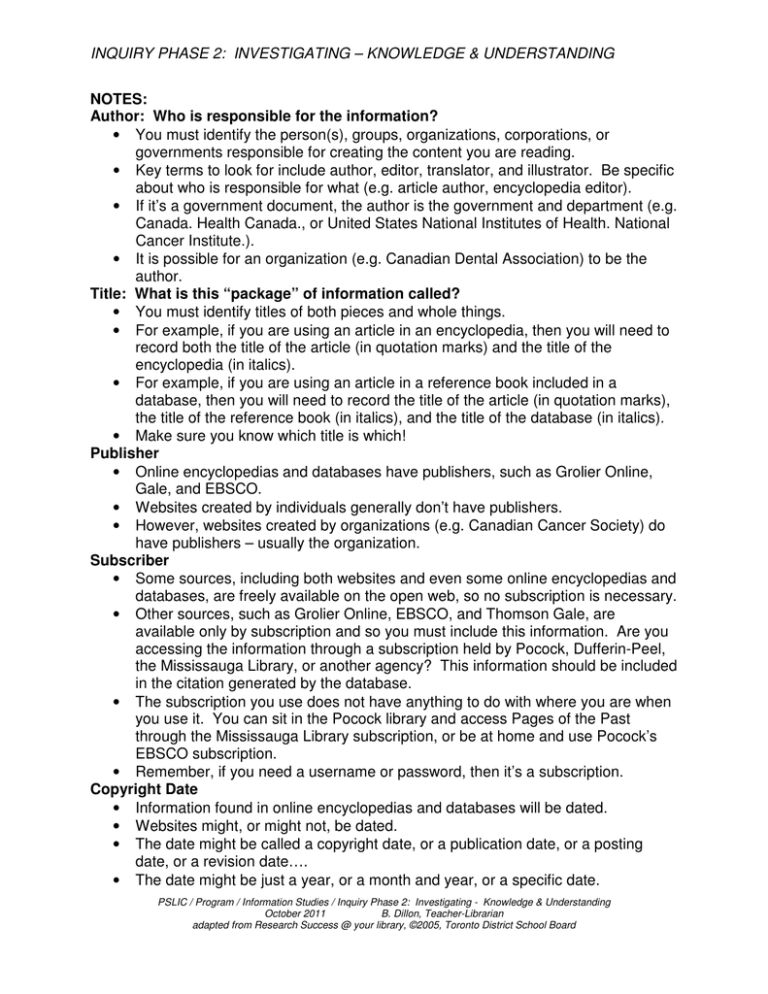
INQUIRY PHASE 2: INVESTIGATING – KNOWLEDGE & UNDERSTANDING NOTES: Author: Who is responsible for the information? • You must identify the person(s), groups, organizations, corporations, or governments responsible for creating the content you are reading. • Key terms to look for include author, editor, translator, and illustrator. Be specific about who is responsible for what (e.g. article author, encyclopedia editor). • If it’s a government document, the author is the government and department (e.g. Canada. Health Canada., or United States National Institutes of Health. National Cancer Institute.). • It is possible for an organization (e.g. Canadian Dental Association) to be the author. Title: What is this “package” of information called? • You must identify titles of both pieces and whole things. • For example, if you are using an article in an encyclopedia, then you will need to record both the title of the article (in quotation marks) and the title of the encyclopedia (in italics). • For example, if you are using an article in a reference book included in a database, then you will need to record the title of the article (in quotation marks), the title of the reference book (in italics), and the title of the database (in italics). • Make sure you know which title is which! Publisher • Online encyclopedias and databases have publishers, such as Grolier Online, Gale, and EBSCO. • Websites created by individuals generally don’t have publishers. • However, websites created by organizations (e.g. Canadian Cancer Society) do have publishers – usually the organization. Subscriber • Some sources, including both websites and even some online encyclopedias and databases, are freely available on the open web, so no subscription is necessary. • Other sources, such as Grolier Online, EBSCO, and Thomson Gale, are available only by subscription and so you must include this information. Are you accessing the information through a subscription held by Pocock, Dufferin-Peel, the Mississauga Library, or another agency? This information should be included in the citation generated by the database. • The subscription you use does not have anything to do with where you are when you use it. You can sit in the Pocock library and access Pages of the Past through the Mississauga Library subscription, or be at home and use Pocock’s EBSCO subscription. • Remember, if you need a username or password, then it’s a subscription. Copyright Date • Information found in online encyclopedias and databases will be dated. • Websites might, or might not, be dated. • The date might be called a copyright date, or a publication date, or a posting date, or a revision date…. • The date might be just a year, or a month and year, or a specific date. PSLIC / Program / Information Studies / Inquiry Phase 2: Investigating - Knowledge & Understanding October 2011 B. Dillon, Teacher-Librarian adapted from Research Success @ your library, ©2005, Toronto District School Board
